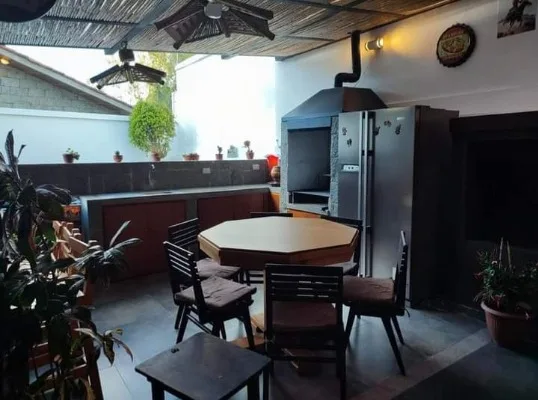Focus of national strike shifts to highway closures; Correa denounces violence, says that protesters who resort to it will be tracked down and prosecuted
Although life has returned to normal in Cuenca following Thursday’s anti-government protest, it remains frustratingly abnormal for motorists heading to Loja and Quito.

Traffic backed up by roadblocks on the Pan American highway.
Mostly indigenous protesters and police played a cat and mouse game Saturday, as roadblocks were built and then cleared and then rebuilt, along the Pan American highway. The largest blockages in southern Ecuador are near Suscal in Cañar Province to the north of Cuenca, and in Saraguro to the south. Drivers headed to Loja have been advised to bypass the Pan American highway and to drive first to Machala to reach Loja.
On Saturday, police, reinforced by Army units, cleared blockages at both sites to let traffic through. Some drivers reported that they had been stalled for as long as six hours before being allowed to pass. The long delay is affecting not just vehicular traffic but pilgrims on their way to the annual celebration of the Virgin of Cisne, near Loja.
Roadblocks also posed a problem for motorists south of Quito, although leaders of the strike said they would allow emergency vehicles to pass due to the danger of eruption of the Cotopaxi volcano.
As protests died down in Quito, President Rafael Correa insisted again that he would never negotiate with those who use violence. During his weekly television address, he showed video of protesters in Quito throwing rocks and lumber at police on Thursday night.
“We will find the people who are doing this and apply the full measure of the law,” he said. “They are thugs and are only interested in destabilizing the government and they will be punished for injuring our police officers.”
Correa also said that obstructing traffic on the country’s roads is illegal and said that the government would continue its efforts to keep roads open.
During his broadcast, Correa criticized leaders of the anti-tax protests two months ago for joining the national strike. Guayaquil Mayor Jaime Nebot and former presidential candidate Guillermo Lasso marched with protesters Friday in Guayaquil. “Isn’t it ironic that Lasso has joined the communists who want to nationalize the banks,” Correa said. Lasso is a banker who has complained in the past about government regulation of bank.
Strike leader Carlos Perez responded to the president, claiming that it was the government that was using violence and said many protesters were hurt in the Thursday night protests in Quito. He also objected to Correa’s imposition of a state of emergency due to the Cotopaxi eruption danger. “He never ordered this when Tungurahua was pouring ash and lava, so why now?” he asked. “I think he will try to use it against those who oppose his regime.”

















